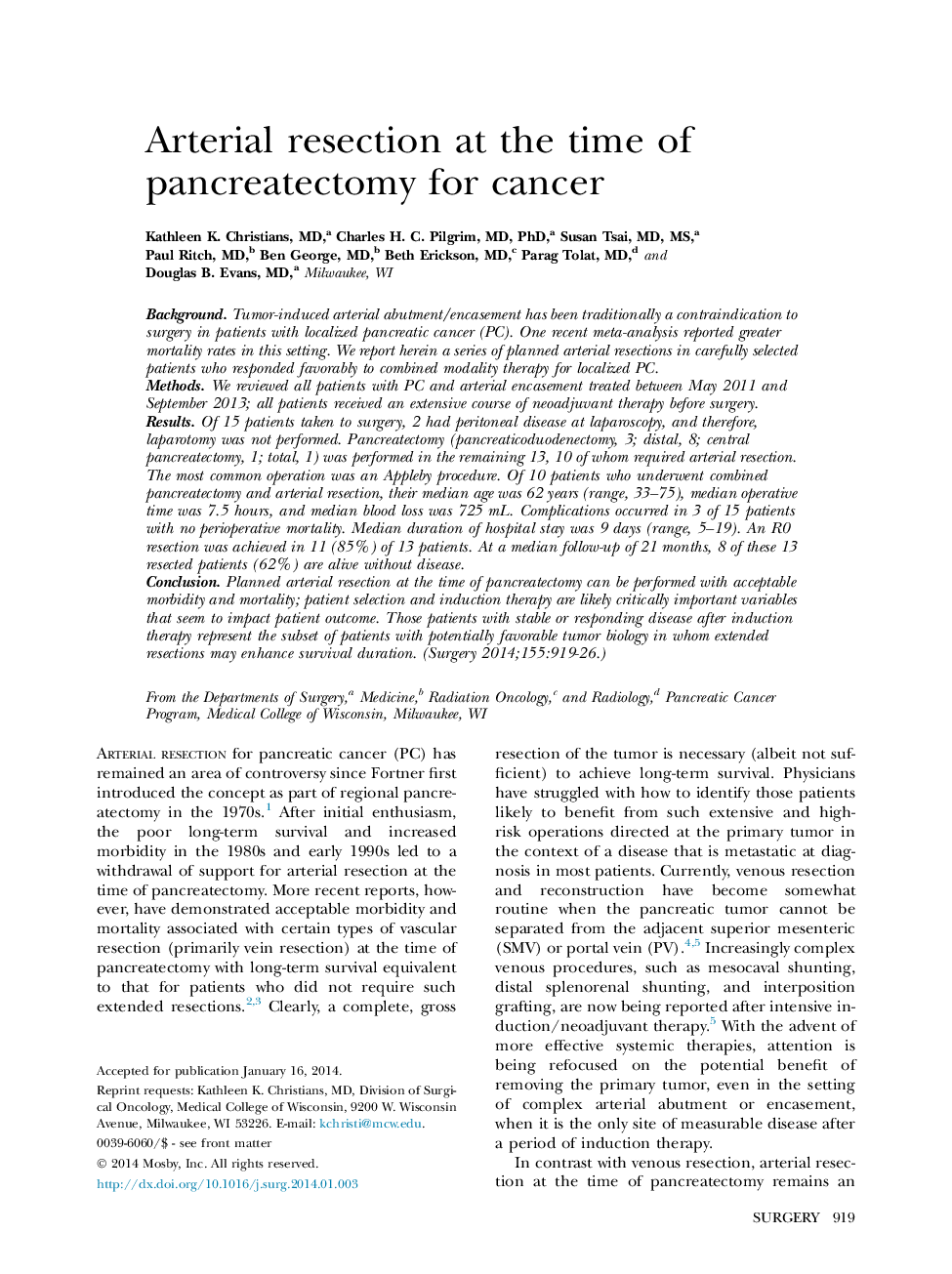| Article ID | Journal | Published Year | Pages | File Type |
|---|---|---|---|---|
| 4306549 | Surgery | 2014 | 8 Pages |
BackgroundTumor-induced arterial abutment/encasement has been traditionally a contraindication to surgery in patients with localized pancreatic cancer (PC). One recent meta-analysis reported greater mortality rates in this setting. We report herein a series of planned arterial resections in carefully selected patients who responded favorably to combined modality therapy for localized PC.MethodsWe reviewed all patients with PC and arterial encasement treated between May 2011 and September 2013; all patients received an extensive course of neoadjuvant therapy before surgery.ResultsOf 15 patients taken to surgery, 2 had peritoneal disease at laparoscopy, and therefore, laparotomy was not performed. Pancreatectomy (pancreaticoduodenectomy, 3; distal, 8; central pancreatectomy, 1; total, 1) was performed in the remaining 13, 10 of whom required arterial resection. The most common operation was an Appleby procedure. Of 10 patients who underwent combined pancreatectomy and arterial resection, their median age was 62 years (range, 33–75), median operative time was 7.5 hours, and median blood loss was 725 mL. Complications occurred in 3 of 15 patients with no perioperative mortality. Median duration of hospital stay was 9 days (range, 5–19). An R0 resection was achieved in 11 (85%) of 13 patients. At a median follow-up of 21 months, 8 of these 13 resected patients (62%) are alive without disease.ConclusionPlanned arterial resection at the time of pancreatectomy can be performed with acceptable morbidity and mortality; patient selection and induction therapy are likely critically important variables that seem to impact patient outcome. Those patients with stable or responding disease after induction therapy represent the subset of patients with potentially favorable tumor biology in whom extended resections may enhance survival duration.
